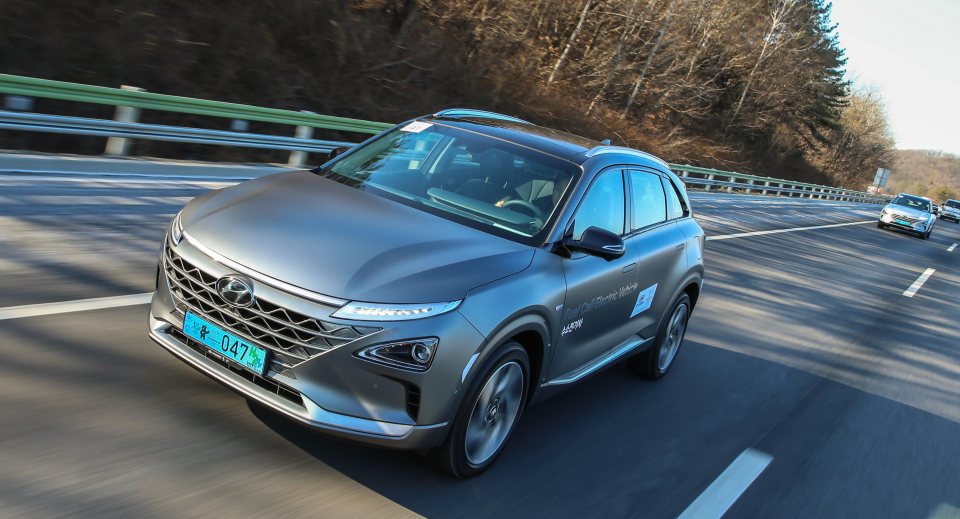Hyundai Motor to bring 1,700 hydrogen cars to Jeju by 2030
By Kim Da-solPublished : Sept. 29, 2022 - 15:14

Hyundai Motor Group will supply 1,700 hydrogen fuel-cell cars to Jeju Island by 2030 as part of joint efforts to build a green hydrogen ecosystem in the country's resort island.
A large green hydrogen production facility is planned to be built in Jeju by 2026. This would enable operations of hydrogen-powered vehicles on the island, according to the company, adding that it is working with Trade Ministry, Jeju Special Self-Governing Province, and Korea Southern Power Co.
Currently, Jeju has no hydrogen fuel cell cars as there is no infrastructure to support such vehicles.
Building such infrastructure will allow the carmaker to deliver 200 garbage trucks, 300 public buses and 1,200 commercial cars to Jeju, all powered by hydrogen. From next year, Hyundai Motor will start supplying hydrogen fuel-cell buses, as well as setting up portable hydrogen charging stations for its flagship hydrogen fuel cell model Nexo.
The plan is a part of the state-led drive to turn South Korea into a hydrogen economy, officials said.
Last year, the Hydrogen Economy Committee, chaired by the prime minister, announced the initial stage plan for fostering a hydrogen industry here. Since then, local conglomerates including Hyundai Motor and SK Group announced a combined 50 trillion-won investment in hydrogen by 2030.
Green hydrogen, also referred as electrolysis hydrogen, is generated from renewable power sources like solar or wind energy, without emitting carbon dioxide.
Green hydrogen is the most eco-friendly in its form, as the electric current splits water into hydrogen and oxygen.



















![[Today’s K-pop] Treasure to publish magazine for debut anniversary](http://res.heraldm.com/phpwas/restmb_idxmake.php?idx=642&simg=/content/image/2024/07/26/20240726050551_0.jpg&u=)